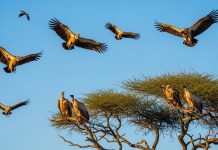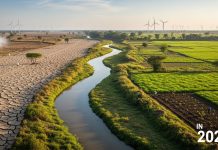President Muhammadu Buhari’s message at the virtual 2020 Biodiversity Summit, held on the margins of the 75th UN General Assembly, in New York seems like a message of hope to conservationists and environment advocates in the country.
In the message delivered last Wednesday, at the summit convened by Ambassador Volkan Bozkir, president of the 75th UNGA, Nigeria’s president expressed that most indigenous flora and fauna commonly found within the country are facing extinction.
Read also: Ogoni cleanup under HYPREP has failed — MOSOP
He announced that an action plan has been put together to salvage the situation.
”We are reviewing our biodiversity-related laws and developing shelterbelts across 11 States in the country. In addressing biodiversity loss, we are implementing the Hydrocarbon Pollution Remediation Programme in Ogoniland,” Buhari said.
”The on-going clean-up is another landmark in the ecosystem restoration initiative of our administration. It is aimed at improving livelihoods of communities in the South-South Region of the country.”
Buhari pointed to a new National Forest Policy, a second update since 1988, signed in July this year as a commitment to ensuring continuous socio-economic development. He said the country is also mauling the development of a National Mangrove Restoration project in the Niger Delta region.
”Furthermore, we are currently implementing a national program on Reducing Emissions from Deforestation and Forest Degradation, a mechanism developed by Parties to the United Nations Framework Convention on Climate Change.
”This programme is aimed at discouraging deforestation, conserving already existing forests, enhancing carbon stock and mitigating climate change impact.
”We have also facilitated the designation of Finima Nature Park in Bonny Island, Rivers State as the 12th Ramsar Site of international importance.
Read also: Boko Haram kills three elephants in Nigeria – Cameroon border community
”The government is equally incorporating biodiversity into tourism sector through a national programme targeted at combating illegal wildlife trade and trafficking in two pilot protected area sites, namely: Gashaka-Gumti National Park; and Yankari Games Reserve,’’ President Buhari said.
He added that the country would expedite the process of accession to both the Nagoya Protocol on Access to Genetic Resources and the Fair and Equitable Sharing of Benefits Arising from their Utilisation.
Nigeria would meet its international obligations on the Nagoya-Kuala Lampur Supplementary Protocol on Liability and Redress to the Cartagena Protocol on Biosafety.
”Concerning ocean governance and marine biodiversity protection, Nigeria is among the first twelve countries to sign onto the 30 by 30 Global Ocean Alliance.
”Accordingly, we have identified two viable sites for the establishment of Marine Protected Areas to help in the protection, conservation and management of both marine and coastal biodiversity resources.
”Leveraging on the Strategic Action Plan of the Lake Chad Basin, Nigeria is spearheading sub-regional biodiversity action to mitigate insecurity, provide jobs, boost agricultural output, food security and reduce poverty.
”Towards the delivery of our biodiversity aspiration, Nigeria has concentrated on the provision of the Convention on Biological Diversity, the Protocols adopted under the Convention and other relevant multilateral environmental agreements into national environmental policies and programmes,” he said.
Many Nigerians hope it is not just all talk. Researchers, rangers and conservation experts in the country believe that more is needed in order to really recover the disappearing biodiversity of Nigeria.
In a recent interview with Dr. Tajudeen Amusa, a conservationist from the department of Forest Resources Management, University of Ilorin pointed out that many nature reserves in the country are now havens of criminals.
He mentioned Sambisa forest, which is gazetted as a game reserve, but has now turned to home ground for the dreaded Boko Haram terrorists as a foremost example.
Experiences by rangers in nature reserves corroborate his claim. This rangers mention lack of equipment to combat poachers and illegal loggers as an expression of lack of will to act by the government.

















